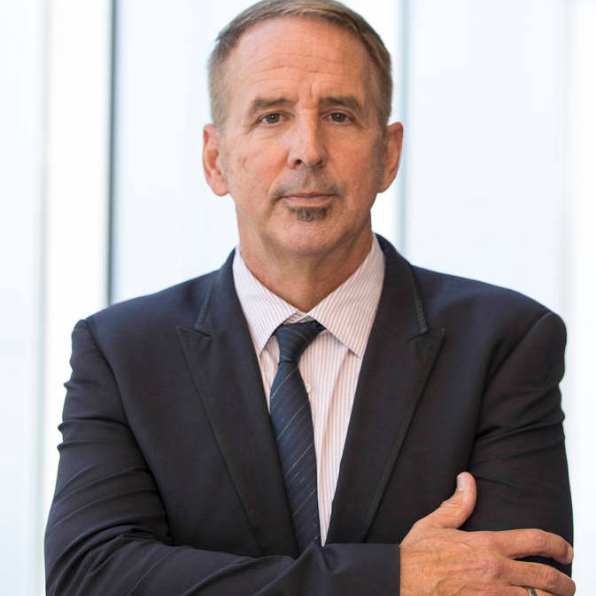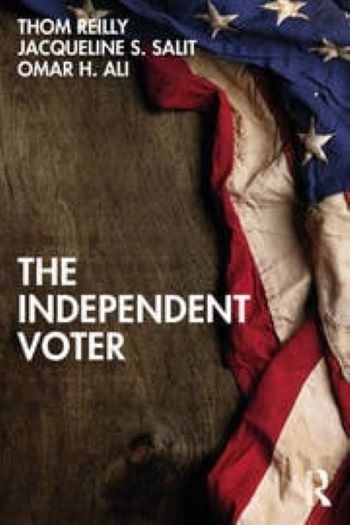For the last 162 years, the course of American government has been based on the competition of the two major political parties, with most U.S. voters registering as either Democrats or Republicans.
But voter confidence in the two-party system has taken a marked turn in the 21st century, and today between 40% and 50% of the U.S. electorate – numbers that are growing – have rejected the norm. Independent voters are now the emerging power in American politics.
One difficulty in understanding the direction this new force is taking, says Professor Thom Reilly of the ASU School of Public Affairs, is knowing what independents think and want from their government.
“What exactly is on the minds of independent voters is difficult to know. Sometimes they elect liberals, sometimes conservatives, sometimes moderates, all in the same election,” said Reilly, co-director of the new ASU Center for an Independent and Sustainable Democracy.
Reilly and Co-Director Jaqueline Salit of IndependentVoting.org will officially open the center Oct. 19 with a reception at the university’s Ambassador Barbara Barrett & Justice Sandra Day O’Connor Washington Center in Washington, D.C.
Both politicians and the public need to come to grips with independent voters’ stronger position at the political table, Reilly said.
According to the center, the number of independent voters increasing nationwide coincides with a rise in the number of American voters who are frustrated with their national government. A recent study by the Partnership for Public Service found that 56% of survey respondents said they do not trust the federal government, and 65% believe the government does not listen to the public.
Reilly said that more and more voters believe the two major parties are mostly responsible for the polarization among citizens and dysfunction in government.
“We at the center are seeking to learn whether a viable pathway to nonpartisan governance exists, whether major reform to our political structure is possible and if we are able to remake the terms of self-governance,” Reilly said. “We also ask if there is a part that independent voters can play in such a change.”
The center seeks to:
- Further study this important, emerging community of voters, and conduct new, innovative research.
- Create a space for diverse, concerned citizens – academics, policymakers, students, activists, civic groups – to engage in dialogue on how best to address the challenges our democracy faces.
- Serve as a resource on the state of our democracy and examine ways to make a shift to nonpartisan alternatives and governance.
Salit referred to Arizona as the focal point for what she called many current “dramatic tensions” on the U.S. political scene.
Thom Reilly, a professor in the ASU School of Public Affairs, is co-director of the Center for an Independent and Sustainable Democracy, whose official opening is Oct. 19. Photo courtesy Thom Reilly
"We have a third of the electorate identifying as independents, a state swinging red and blue with independents playing the decisive role, and yet the tools for understanding and analyzing these breakaway patterns are limited and out of date,” Salit said. “We hope that our center, with the backing of the university, will open new and innovative ways of engaging political problems."
The center's opening coincides with the publication of a new book Reilly and Salit co-wrote with Omar Ali of the University of North Carolina, Greensboro, titled “The Independent Voter.” The book is published by Routledge Press and asserts independents are far from monolithic in their political leanings. They represent major change for American democracy, and may even be responsible for saving it, the authors contend.
By definition, independents’ non-aligned status has them traveling a wide variety of political roads. They hold diverse views from one another, much more than their partisan counterparts, making them a difficult target for candidates trying to corral them into their political column, Reilly said.
Independents, lacking faith in the two major parties, have many different views on political subjects instead of gravitating toward a particular partisan political philosophy, he said.
Independents also have more moderate political views than partisans because more of them are willing to share what they learn on social media with partisans at both ends of the spectrum, according to a recent survey of Arizona voters Reilly co-conducted with Eric Hedberg of Abt Associates of Rockville, Maryland.
"The Independent Voter" by Thom Reilly, Jacqueline Salit and Omar Ali, was released in September 2022 by Routledge Press.
“Respondents, whether Democrats or Republicans, were likelier to speak often about politics with independents than with those belonging to the other party,” Reilly said. “We also found that a larger percentage of Republicans or Democrats say they have an independent in their social network than someone of the other party.”
Independents were also less prone to terminate friendships over political differences with Democrats or Republicans than party members were likely to do so with each other, Reilly said.
Reilly said he hopes the center will be a resource for citizens, media and academics seeking reliable information and research into U.S. electoral and political behavior and insight on how independent voters’ involvement in politics can help effectively change American democracy.
Salit said independent voters have been “misunderstood, classified incorrectly and generally minimized in national and local politics. Yet, they determine the outcome of major elections, stand in the forefront of political reform and are adding numbers to their ranks every day.”
Salit said the center is dedicated to resetting public understanding of these influential voters. “And we are so pleased that ASU has stepped up to plant a flag with us at such a critical time,” she said.
To learn more about either the center or the book, contact Reilly at thom.reilly@asu.edu or Salit at jsalit@asu.edu.
More Law, journalism and politics

Exhibit uses rare memorabilia to illustrate evolution of US presidential campaigns
After one of the most contentious elections in history, a new museum exhibit offers a historical perspective on the centuries-old…

TechTainment conference explores the crossroads of law, technology, entertainment
What protections do writers, actors, producers and others have from AI? Will changing laws around name, image and likeness (…

How to watch an election
Every election night, adrenaline pumps through newsrooms across the country as journalists take the pulse of democracy. We…


